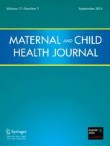
Αρχειοθήκη ιστολογίου
-
►
2023
(269)
- ► Φεβρουαρίου (133)
- ► Ιανουαρίου (136)
-
►
2022
(2046)
- ► Δεκεμβρίου (165)
- ► Σεπτεμβρίου (161)
- ► Φεβρουαρίου (165)
-
►
2021
(3028)
- ► Δεκεμβρίου (135)
- ► Σεπτεμβρίου (182)
- ► Φεβρουαρίου (324)
-
▼
2020
(1051)
- ► Δεκεμβρίου (292)
-
▼
Σεπτεμβρίου
(60)
-
▼
Σεπ 08
(40)
- Medicine by Alexandros G. Sfakianakis
- Antibodies
- Royal Society of Chemistry (Great Britain) Socie...
- Novel therapeutic strategies for treating Pseudomo...
- Aberrantly expressed lncRNAs and mRNAs after botul...
- Transcriptomic Analysis of Peripheral Blood Mononu...
- Major Durable Response of Pembrolizumab in Chemoth...
- Complete Clinical Response in Stage IVB Endometrio...
- Primary Undifferentiated Pericardial Sarcoma after...
- “Suprascapular canal”: Anatomical and topographica...
- Meranzin hydrate elicits antidepressant effects an...
- Experimental autoimmune encephalopathy (EAE)-induc...
- IL-10 production by ILC2s requires Blimp-1 and cMa...
- Chest Computed Tomography Findings in Asymptomatic...
- Inhaled Molgramostim Therapy in Autoimmune Pulmona...
- Efficacy of oral rosuvastatin intervention on HDL ...
- Non-glucose risk factors in the pathogenesis of di...
- Although cow’s milk is rich in calcium, it does no...
- Guidelines Suggesting Children Avoid Plant-Based M...
- Novel basophil activation test in diagnosis of pov...
- Challenges in Skin Testing for Progestogen Hyperse...
- combining OCT with autofluorescence imaging for id...
- Biomedicine & Pharmacotherapy
- Acta Cirurgica Brasileira
- Nature Communications - current - nature.com sci...
- American Society for Stereotactic and Functional...
- American Journal of Otolaryngology
- Journal of Neurosurgical Anesthesiology - Curren...
- Clinical Imaging
- Clinical Cancer Research Online First Articles
- BioMed Research International
- Nanomaterials<
- Molecules
- International Journal of Molecular Sciences
- International Journal of Environmental Research ...
- Cells
- Cancers
- Antibiotics
-
▼
Σεπ 08
(40)
- ► Φεβρουαρίου (28)
-
►
2019
(2277)
- ► Δεκεμβρίου (18)
- ► Σεπτεμβρίου (54)
- ► Φεβρουαρίου (89)
-
►
2018
(26280)
- ► Δεκεμβρίου (189)
- ► Φεβρουαρίου (6130)
- ► Ιανουαρίου (7050)
-
►
2017
(33948)
- ► Δεκεμβρίου (6715)
- ► Σεπτεμβρίου (6470)
-
►
2016
(4179)
- ► Σεπτεμβρίου (638)
- ► Φεβρουαρίου (526)
- ► Ιανουαρίου (517)
Τρίτη 8 Σεπτεμβρίου 2020
Although cow’s milk is rich in calcium, it does not appear to clearly reduce fractures, but consumption carries risks including: a potential association with type 1 diabetes mellitus onset; anemia in toddlers; lactose intolerance; cow’s milk protein allergy; and infantile colic. ........................................Guidelines Suggesting Children Avoid Plant-Based Milks: A Closer Examination
Guidelines Suggesting Children Avoid Plant-Based Milks: A Closer Examination:


Εγγραφή σε:
Σχόλια ανάρτησης (Atom)
Δεν υπάρχουν σχόλια:
Δημοσίευση σχολίου